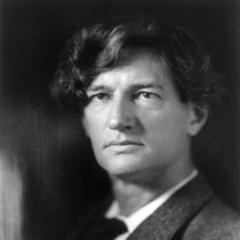William Shenstone Quotes
William Shenstone, Samuel Johnson, Robert Dodsley (1807). “Essays on men and manners; with aphorisms, criticisms, impromptus, fragments, etc”, p.111
William Shenstone (1804). “Essays on Men and Manners”, p.42
The weak and insipid white wine makes at length excellent vinegar.
William Shenstone, Samuel Johnson, Robert Dodsley (1807). “Essays on men and manners; with aphorisms, criticisms, impromptus, fragments, etc”, p.124
'Essays on Men, Manners, and Things' 'On Reserve' in 'Works in Verse and Prose' (1764) vol. 2
Health is beauty, and the most perfect health is the most perfect beauty.
Essays on Men and Manners 'On Taste'
Deference is the most complicate, the most indirect, and the most elegant of all compliments.
William Shenstone (1764). “The Works, in Verse and Prose”, p.254
A miser grows rich by seeming poor. An extravagant man grows poor by seeming rich.
William Shenstone, Samuel Johnson, Robert Dodsley (1807). “Essays on men and manners; with aphorisms, criticisms, impromptus, fragments, etc”, p.156
'Essays on Men, Manners, and Things' 'On Politics' in 'Works' (1764) vol. 2.
Long sentences in a short composition are like large rooms in a little house.
William Shenstone (1764). “The Works in Verse and Prose, of William Shenstone, Esq: Most of which Were Never Before Printed ...”, p.170
William Shenstone (1768). “The Works, in Verse and Prose, of William Shenstone, Esq: In Two Volumes. With Decorations”, p.147
William Shenstone (1804). “Essays on Men and Manners”, p.107
William Shenstone, Samuel Johnson, Robert Dodsley (1807). “Essays on men and manners; with aphorisms, criticisms, impromptus, fragments, etc”, p.137
Oliver Goldsmith, Tobias Smollett, Samuel Johnson, William Shenstone (1861). “Poetical Works of Oliver Goldsmith, Tobias Smollett, Samuel Johnson and William Shenstone”
William Shenstone (1868). “Essays on men and manners”, p.231
William Shenstone (1764). “The Works, in Verse and Prose”, p.52
William Shenstone (1804). “Essays on Men and Manners”, p.88
William Shenstone (1804). “Essays on Men and Manners”, p.151
William Shenstone, Phillis Wheatley (1773). “The works, in verse and prose of William Shenstone, esq. ...”, p.218
'Essays on Men, Manners, and Things' 'On Writing and Books' in 'Works in Verse and Prose' (1764) vol. 2
William Shenstone (1868). “Essays on Men and Manners”, p.281







